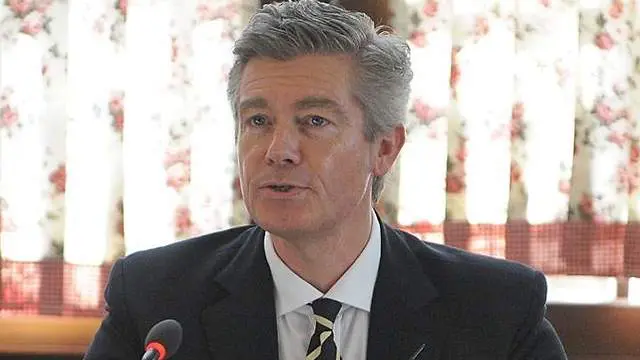NEWS PROVIDED BY Edward Montague Associates May 31, 2021,
When he gives evidence to the Kosovo Parliament, Judge Malcolm Simmons will allege the EU Rule of Law mission perverted justice for political goals.
LONDON, UNITED KINGDOM, May 31, 2021 /EINPresswire.com/ — In 2016 a judge of a European Union (‘EU’) Member State, employed by EULEX, the EU Rule of Law Mission in Kosovo, hacked into the private emails of the President of EULEX Judges, Malcolm Simmons. Those emails revealed that Judge Simmons was a whistle blower and that since 2013 he had reported to the UK Government and the EU anti-fraud agency matters of serious concern within the EULEX Mission in Kosovo including interference in criminal trials and the commission of criminal offences.Judge Simmons demanded an independent investigation into the hacking of his private emails. That request was refused by the European External Action Service (‘EEAS’). Instead, an investigation was conducted by EULEX. EULEX opened the investigation and promptly closed it. No reason was given. Judge Simmons demanded access to the investigation file. When Judge Simmons was eventually given access to the file, he discovered it contained only one document and that was the notification informing him the investigation had been closed.
Following the disclosure of his private emails, the EEAS commenced disciplinary proceedings against Judge Simmons. The persons in charge of those disciplinary proceedings were the very persons Judge Simmons had accused of serious misconduct. The disciplinary board comprised three members only one of whom was a judge. Another member of the board was a Logistics Officer who was subordinate to the very persons Judge Simmons had accused of serious misconduct.
The European Court of Human Rights has made it very clear in its decisions that in disciplinary proceedings against a judge, a majority of the board should be judges. In the case brought against Judge Simmons, only one member was a judge. However, that was not the only abuse of the disciplinary process. The Board refused to consider statements of senior judges, giving no reasons for so doing. In addition, Judge Simmons was not present when other, important, witnesses were examined by the Board. Instead, he received by email what the Board referred to as a “resume” of their evidence. Judge Simmons had no opportunity to challenge their evidence or ask his own questions.
An Appeals Board ignored judgments of the European Court of Human Rights and International Conventions and Charters. The Appeals Board also ignored Article 6 of the European Convention on Human Rights that provides Judge Simmons was entitled to be tried “…by an independent and impartial tribunal established by law.” A member of the Board was an employee of the EEAS, the department that commenced the disciplinary proceedings against him and was subordinate to a person Judge Simmons had accused of serious misconduct. Therefore, not only did the Board in his case not comprise a majority of judges in clear contravention of international law and practice, the Board was also not impartial. This was a fundamental breach of Article 6 of the ECHR.
Four judges working within the EU system were involved in the disciplinary proceedings taken against Judge Simmons: one in the first-instance disciplinary panel and three in the appeal panel. Were these four EU judges unaware of important decisions of the European Court of Human Rights that addressed issues including the composition of disciplinary boards involving judges? Had these four EU judges not heard of Article 6 of the ECHR that guarantees a defendant’s right to a fair hearing before an impartial tribunal? Were these four EU judges unaware of the most basic principles of fairness and due process?
When Judge Simmons gives evidence to the Kosovo Parliament in the coming weeks, he will allege senior members of staff of the EEAS conspired with members of the disciplinary board to pervert the course of justice for the sole purpose of removing him because he was a whistle blower.
Judge Malcolm Simmons served as an international judge from 2004 to 2017 hearing war crime and serious and organised crime cases. He presided in some of the most complex war crime and serious organised crime cases in Bosnia & Herzegovina and Kosovo during their troubled post-war periods. He served as President of EU International Judges from 2014 to 2017.
<
p class=”contact c4″ dir=”auto”>Malcolm Simmons
Edward Montague
+44 7881962265
email us here
Visit us on social media:
Twitter
LinkedIn![]()







